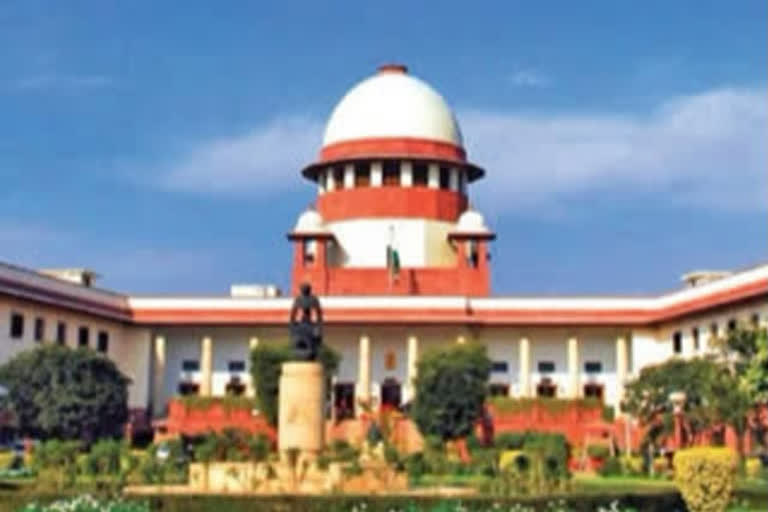New Delhi: The Supreme Court urged the lower courts to get out of the adjournment culture and not to grant repeated adjournments in a routine manner. The repeated adjournments break the back of the litigants and consequentially lose confidence in the justice delivery system. A judicial offer has to bear in mind his duties to the litigants and shall not worry about 'displeasure of bar' for not granting unnecessary adjournments, the bench comprising Justice MR Shah and AS Bopanna observed.
The court made these observations while considering a special leave petition terming it as a classic example of misuse of the adjournments granted by the court. In this particular case, the plaintiffs filed the suit for eviction, arrears of rent and mesne profit as far as back in the year 2013.
The court noted that despite repeated adjournments sought and granted by the court and even twice the adjournments were granted as the last opportunity and even the cost was imposed, the defendant failed to cross-examine the plaintiff's witness. Although adequate liberty was given to the defendant to cross-examine the plaintiff's witness, they never availed of the same and went on delaying the proceedings by repeated prayers of adjournment and unfortunately the Trial Court and even subsequently the High Court continued to grant adjournment after adjournment and as such contributed the delay in disposal of the suit which as such was for eviction, the court said.
Read: Vansadhara River Water Dispute: SC issues notice in Odisha Govt's plea against Tribunal order
Dismissing the SLP filed against a High Court order which confirmed the Trial Court order closing the right to cross examine the plaintiff's witness, the apex court said such approach is wholly condemnable. Law and professional ethics do not permit such practice. Repeated adjournments on one or the other pretext and adopting the dilatory tactics is an insult to justice and the concept of speedy disposal of cases.
The Supreme Court also mentioned that arrears are mounting because of such delay and dilatory tactics. The judiciary and the justice delivery system is facing acute problem of delay which ultimately affects the right of the litigant to access to justice and the speedy trial. Arrears are mounting because of such delay and dilatory tactics and asking for repeated adjournments by the advocates and granted by the courts in a routine manner mechanically.
The apex court observed that it cannot be disputed that due to delay in access to justice and not getting timely justice it may shaken the trust and confidence of the litigants in the justice delivery system. Many times, the task of adjournments is used to kill Justice. Repeated adjournments break the back of the litigants. The courts are performing their duties with the object of strengthening the confidence of the common man in the institution entrusted with the administration of justice.
Any effort which weakens the system and shakes the faith of the common man in the justice dispensation has to be discouraged. Therefore the courts shall not grant the adjournments in a routine manner and mechanically and shall not be a party to cause for delay in dispensing the justice. The courts have to be diligent and take timely action in order to usher in an efficient justice dispensation system and maintain faith in rule of law.
The Supreme Court also observed that the judicial officer has to bear in mind his duties to the litigants and shall not worry about 'displeasure of Bar'. Whenever the trial courts refused to grant unnecessary adjournments, they are accused of being strict and they may face the displeasure of the Bar. The judicial officers shall not worry about that if their conscience is clear and the judicial officer has to bear in mind his duties to the litigants who are before the courts and who have come for justice and for whom Courts are meant and all efforts shall be made by the courts to provide timely justice to the litigants.
The time has come to change the work culture and get out of the adjournment culture, the apex court pointed out.
Read: PM Modi exhorts world to fight 'terrorism' used as political tool



